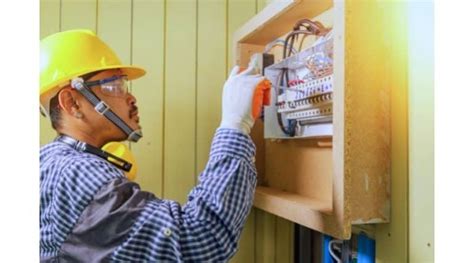How To Dry Wet Electrical Wires
Ronan Farrow
Mar 31, 2025 · 3 min read

Table of Contents
How to Dry Wet Electrical Wires: A Comprehensive Guide
Dealing with wet electrical wires is a serious safety hazard. Never attempt to work with wet wires unless you're properly trained and equipped. This guide provides crucial safety information and steps to take if you encounter this situation. Always prioritize safety!
Understanding the Dangers of Wet Electrical Wires
Water and electricity are a deadly combination. Wet electrical wires drastically increase the risk of:
- Electric shock: Water is a conductor, allowing electricity to easily flow through it and into you.
- Electrical fire: Moisture can damage insulation, leading to short circuits and potentially catastrophic fires.
- Equipment damage: Wet wires can damage appliances and electronic devices connected to them.
Assessing the Situation: Before You Begin
Before attempting any action, immediately turn off the power at the breaker box. This is the most critical step to prevent electrocution. If you're unsure how to locate your breaker box or which breaker controls the affected circuit, call a qualified electrician.
Identifying the Source of the Wetness
Determine what caused the wires to get wet. Is it:
- Rain or flooding? This requires a different approach than a simple spill.
- A leak? Addressing the source of the leak is paramount before dealing with the wires.
- A spill? The type of liquid spilled also matters. Some liquids are more conductive than others.
Drying Wet Electrical Wires: Safe Procedures
Once the power is OFF and you've assessed the situation, follow these steps:
1. Visual Inspection
Carefully examine the wires for visible damage, such as fraying, exposed copper, or melted insulation. If you see any damage, do NOT attempt to repair them yourself. Call a professional electrician immediately.
2. Gentle Drying
Use absorbent materials like clean, dry towels to gently blot the wires. Avoid rubbing, which could further damage the insulation. Allow the wires to air dry thoroughly in a well-ventilated area.
3. Patience is Key
This process takes time. Rushing the drying process could lead to further complications. Allow ample time for complete drying – this might take several hours or even overnight, depending on the extent of the wetness.
4. Testing for Dryness
Before restoring power, use a multimeter (if you have experience using one and understand its functions) to check the electrical resistance. If you are not comfortable using a multimeter, do not attempt this step and call a professional. A low resistance reading indicates the wires aren't completely dry and still pose a risk.
When to Call a Professional Electrician
Always call a qualified electrician in these situations:
- You are unsure about any aspect of the process.
- You observe any damage to the wires.
- The wetness is extensive or caused by flooding.
- The problem persists after attempting to dry the wires.
- You're uncomfortable working with electricity.
Prevention is Better Than Cure
Preventing wet electrical wires is crucial. Regularly inspect your wiring for signs of damage. Ensure proper ventilation and address any potential water leaks promptly. Protect your electrical system from the elements by using appropriate weatherproof covers and sealing any openings.
This guide provides general information; it's not a substitute for professional electrical advice. Safety should always be your top priority. Always err on the side of caution and call a qualified electrician if you have any doubts.
Featured Posts
Also read the following articles
| Article Title | Date |
|---|---|
| How To Delete Resonator | Mar 31, 2025 |
| How To Get Clownfish To Host Anemone | Mar 31, 2025 |
| How To Fix Soft Spot On Boat Floor | Mar 31, 2025 |
| How To Find A Dead Mouse In Your Car | Mar 31, 2025 |
| How To Get Over A Girlfriends Promiscuous Past | Mar 31, 2025 |
Latest Posts
-
How Do Exit Signs Work On Both Sides
Apr 04, 2025
-
How Do Electric Skateboards Work
Apr 04, 2025
-
How Do Dual Zone Hvac Systems Work
Apr 04, 2025
-
How Do Dentists Remove A Crown
Apr 04, 2025
-
How Do Defensive Coordinators Call Plays
Apr 04, 2025
Thank you for visiting our website which covers about How To Dry Wet Electrical Wires . We hope the information provided has been useful to you. Feel free to contact us if you have any questions or need further assistance. See you next time and don't miss to bookmark.
